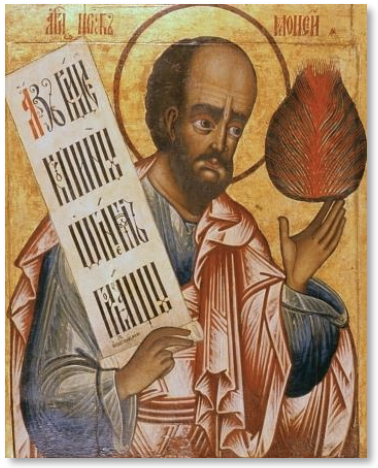The Creation of the Old Testament
Strictly speaking, the Bible is not one book, but many—not a single volume, but a library. The English word “Bible” comes from the Greek ta biblia— “the books” (plural). In this library we find books dating from before Christ (the Old Testament) and after Christ (the New Testament).

The writing, editing, and collecting of the Old Testament took place over many years. The Old Testament was written mostly in Hebrew, though some sections were written in Aramaic. It tells the epic story of Israel as the People of God, from the time of Abraham their forefather to the time of Christ. After a prologue which sets the story of Abraham and his descendants in a cosmic setting (Gen 1–11), the epic begins by narrating the call of Abraham and the story of the patriarchs, his sons Isaac and Jacob, and Jacob’s twelve sons, the progenitors of the nation of Israel. The story continues throughout the Pentateuch,1 narrating Israel’s sojourn and slavery in Egypt and their liberation by the mighty hand of God, and the giving of the Law on Mount Sinai. These five books end with Israel poised to enter the Promised Land.
The epic continues with the books of Joshua, Judges, 1–2 Samuel and 1–2 Kings,2 which narrate the story of Israel’s conquest and dwelling in the Promised Land, their apostasy, and final exile. The books of the prophets3 contain God’s word to Israel throughout this time, when He rebuked them for their apostasy and vainly tried to call them back to repentance and security. The prophetical books contain promises of judgment upon Israel for their impenitent idolatry; but also promises of God’s gracious restoration of Israel return to the Promised Land after their repentance. During this time sacred literature was produced by David, Solomon, and others, containing an outpouring of praise, penitence, and lament (the Psalms), as well as treatises containing a call to wisdom (Job, Proverbs, Ecclesiastes, and the Song of Solomon). After the exile and Israel’s return to the Promised Land, the books of Ezra and Nehemiah narrate the story of their national life after the return. Other prophets continued to exhort Israel to faithfulness and courage during this difficult time (e.g., Habakkuk, Zechariah, and Malachi).4
The book of the prophet Malachi was written about 400 B.C., but of course literary production among the Chosen People did not cease at that time. Other works continued to be produced, such as 1 Esdras, Judith, Tobit, Sirach,[^5] and the pseudonymous Wisdom of Solomon. The stories of the adventures of the Maccabees also were written in several books. All of this literature formed the sacred inheritance of the people of God as they waited for the fulfillment of all that their prophets had promised, which they believed would be brought to fruition with the coming of the promised Davidic king who was to rule over a glorified nation—the Messiah.
Footnotes
-
The Pentateuch means the first five books, also called the Torah: Genesis, Exodus, Leviticus, Numbers, and Deuteronomy. ↩
-
In the LXX, 1–4 Kingdoms. ↩
-
The books of the prophets include the 5 major prophets, such as Isaiah, Jeremiah, and Ezekiel, and 12 minor prophets. ↩
-
Many scholars date the Book of Daniel to this time, others date it in the time of the Exile. ↩